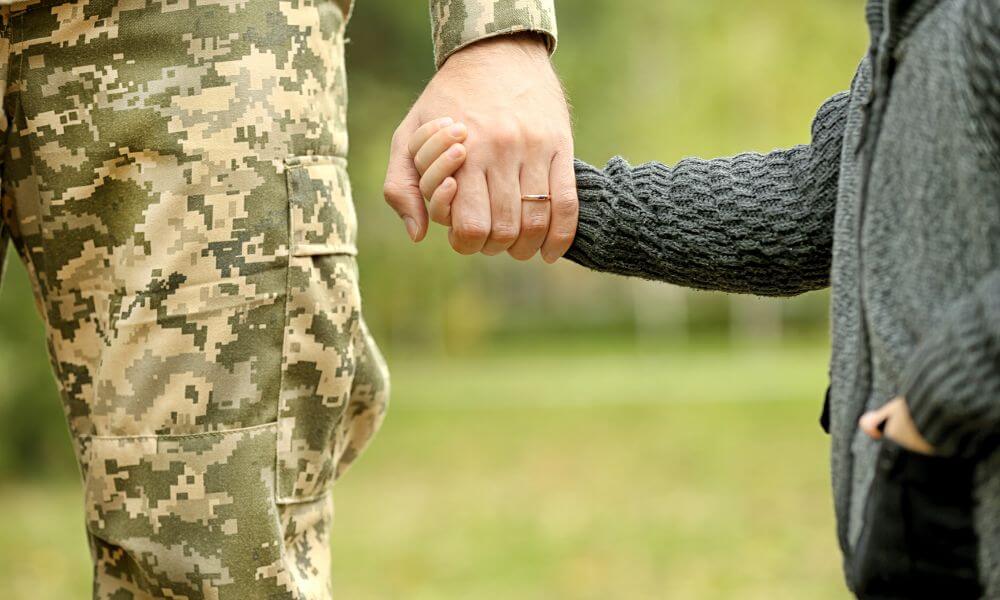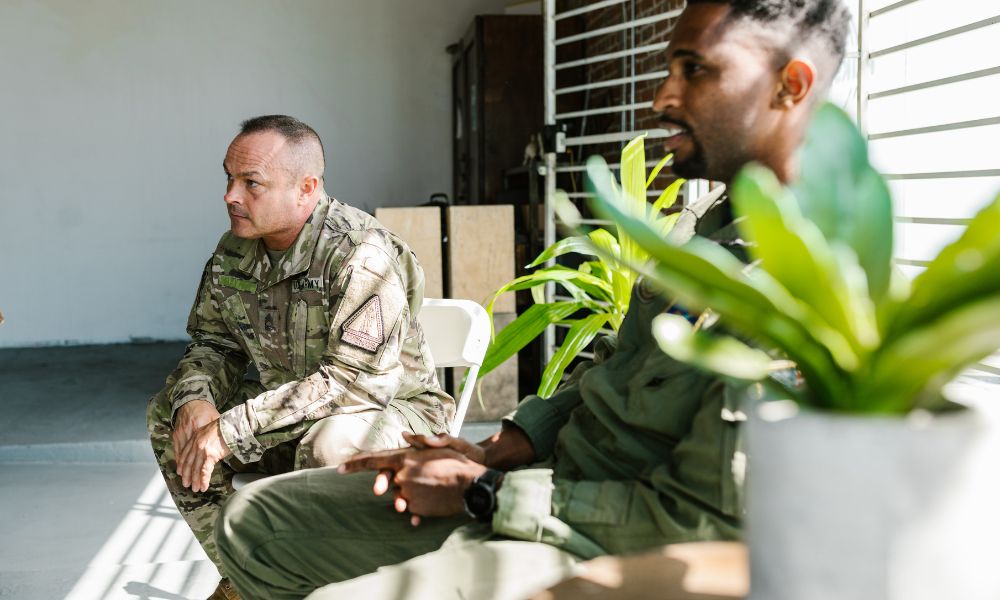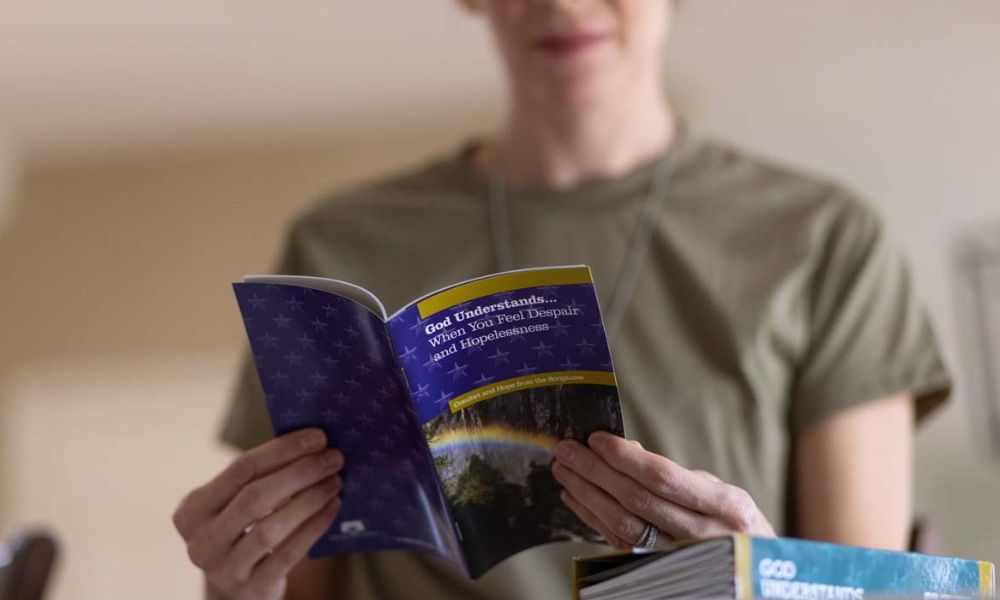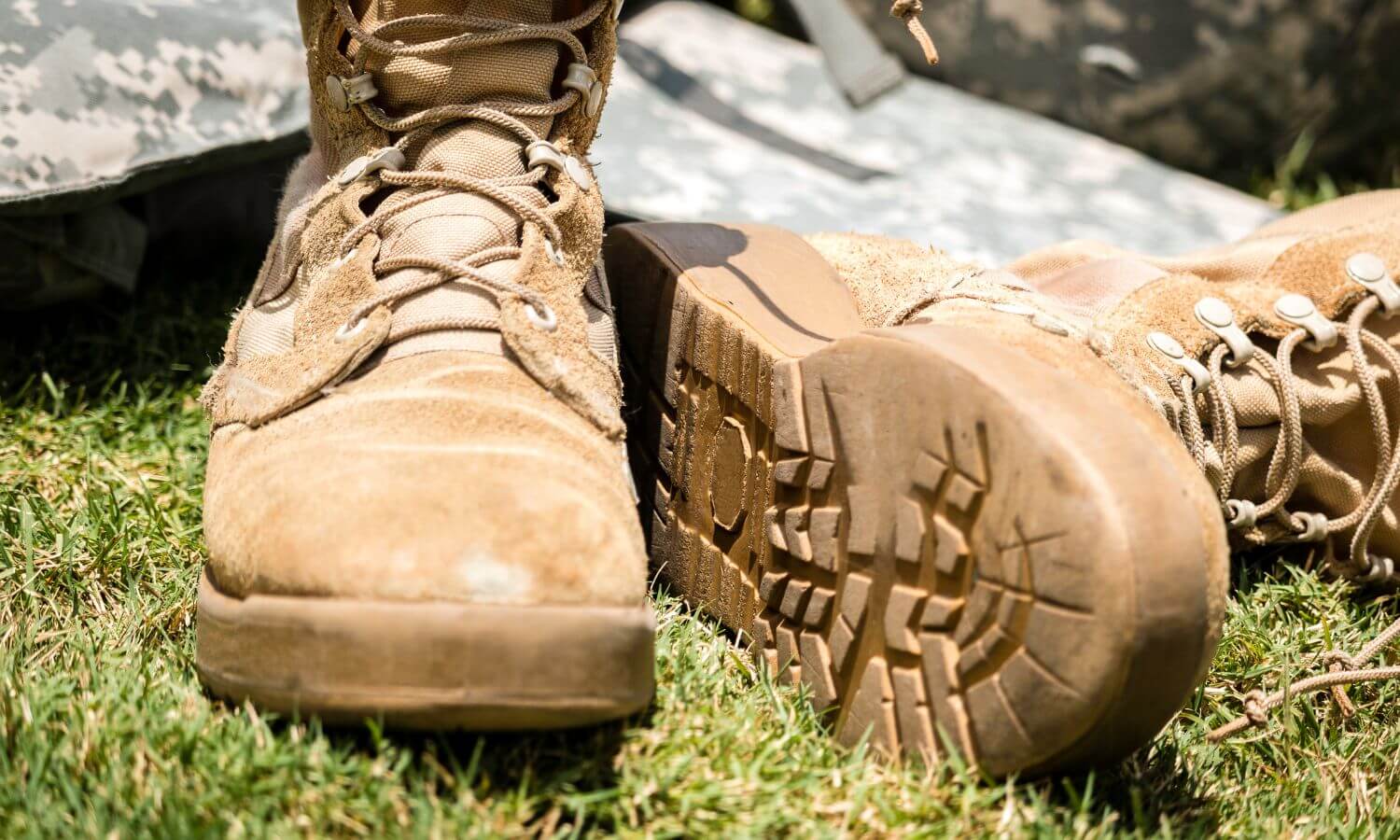When Service members return home and are dismissed by their commanding officer for the last time to end their tour of duty, there is a figurative sigh of relief for the Warriors and their families.
At least… for most of them.
Wounds of the physical nature, though common, are not the only scars that Veterans bear. Mental health—and its associated challenges—is being recognized more and more as a concern among those who serve, as well as their families.
According to the US Department of Veterans Affairs, over 1.7 million Veterans received mental health services at the VA last year alone. Services offered included peer support, therapy, medication, or a combination of those services. Services treated everything from PTSD, to suicidal ideations, substance abuse, depression and several others.
Although many of the mental health issues listed above also affect civilians, some are particularly unique to Military life—created by injuries in combat, long-term separation from loved ones, and overall disruptions to family life or loved ones at home. They need specialized support.
Retired Chaplain David Smith: First-Hand Experience

Fortunately, that support is right around the corner. In a recent interview, ASM’s Paul McCullough was able to talk to David Smith, a retired Chaplain and Colonel with the US Army. Chaplain Smith who observed the impact of mental health issues in the Military, because for many of his 30 years of service, he too experienced them:
“So for myself this became a realization [having PTSD], because when I came back from Iraq, I knew I was changed. I knew I was affected but I didn’t know how to deal with it. And so I came back in 2004. I deployed three other times after that to the Afghanistan with PTSD.”
During his deployments he had multiple near-death experiences; from IED explosions to his chopper crashing down. His family also dealt with the strain of moving around and being apart. They were separated for nine out of those 30 years because of deployments. He continued his missions, but the effects of the PTSD were inevitable. He realized in 2012 that these changes that were getting to him were also negatively affecting his family, so he decided to get help.
“…when I came back from Iraq, I knew I was changed.”
Following his retirement, Chaplain Smith still advocated for mental wellness among active duty members, veterans, and their families.
Listen to the full interview here:
Expert Advice on Military Deployment Challenges
Military deployment creates immediate challenges. For Service members, there is an immediate disconnect not only from family but from the social circles they are used to. There is the obvious absence of physical proximity to their loved ones, but also the experiences and milestones that they are going to be missing out on like birthdays, anniversaries and holidays.
When leaving loved ones behind, meaningful and empathetic relationships can be found in no better place than with fellow Military members. Chaplain Smith emphasized the importance of relationships.
Working alongside other Chaplains and a Brigade Commander, he suggested providing high-risk Soldiers on tour in a combat zone the opportunity to decompress together before going home–spending a week cleaning weapons and equipment, talking, sharing stories, laughing and crying with each other. The results were undeniable:
“But that week provided an opportunity for them to diffuse a bunch of the issues that they were going through from their deployment experience prior to getting back to their family… there was not one suicide ideation. There was not one spouse abuse report. And so, I think doing what we did to prep them prior to coming back (again, it’s all about relationships) helped that brigade to be better prepared to be back with their family than what we were doing before.”

What better counseling or therapy is there than being able to vent and share your experiences with those who know exactly what you are going through? Relationships are absolutely key to embarking on the road to healing (or even prevention) when it comes to many of the mental health issues facing Service members today.
As always, Armed Services Ministry is here to help. Our mission has been and will always be serving the Military and Military families.
Resources for Military Mental Health
The Soldiers that Chaplain Smith observed for that week were able to lean on the relationships they had with their battle buddies.
They were never alone.

In our Never Alone series, we focus on the pain and the challenges Service members face as they seek healing and peace. One of our modules even covers Coming Home, which hones in on the challenges and phases of post-deployment transitions.
In our God Understands study, we go right to the heart of the matter: challenges that create and fuel mental health issues—hopelessness, anger, and guilt to name a few. We share stories from other Warriors that understand these challenges, because they’ve been there too.
Would you like to speak to someone at ASM directly? Visit our contact page where you can connect with Veterans and retired Chaplains who would love to listen to you and to pray for you.
We are here to serve those who serve.
Final Thoughts on Deployment Stress and Resources for Success
No Service member (or their families) should have to go through these very real challenges alone. A Military career is a hard path to follow—it takes dedication, readiness and resiliency—and these qualities can also be found in your support groups of Chaplains, counselors, loved ones and your friends at ASM.
Together, we will walk through the hardest battlefields, lifting each other up.
“Two are better than one, because they have a good reward for their toil. For if they fall, one will lift up his fellow. But woe to him who is alone when he falls and has not another to lift him up!”
Ecclesiastes 4:9-10 (ESV)
To read a previous article about our interview with Chaplain Smith, click here.





